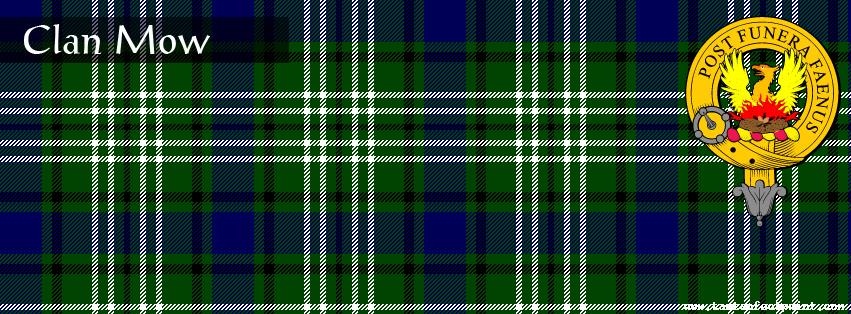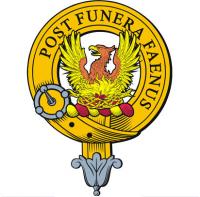
Clan Mow
The name is of territorial origin. It was taken from the place Molle, which is now spelled Mow, in the upper half of the parish of Morebattle in Roxburghshire. There have been a number of different people who went by the name “de Molle” in the 1100s and 1200s; however, their relationship is uncertain. Liulf de Molle is recorded to have lived during the reigns of both Alexander I and David I, whilst his son Uctred had the town of Molle and the church’s patronage sometime before 1152. Around the same time, the church of Molle, along with the neighbouring land and the town’s common pasture were granted to the monks of Kelso by Vctred, son of Liulf. This grant was confirmed by Herbert of Selkirk, the bishop of Glasgow, and by King Malcolm IV in 1159. Sometime between 1165 and 1190, Anselm de Molle, also known as de Wittun, made a gift to Kelso Abbey of lands in Molle. Circa 1170, King William confirmed the earlier grant of the church of Molle, by Vctred de Molle to Kelso Abbey. Around ten years later, in 1180, a gift by Galfrid Ridel, also to Kelso Abbey, was witnessed by Henry de Molle.
Some point before 1177, Lady Eschina de Molle, as known as Eschina de Londoniis, apparently inherited the possessions of Uctred. Eschina married, secondly, Henry of Molle. Together they had four daughters, Margaret, Eschina, Avicia, and Cecilia. When Cecilia died the direct line of the family appears to have died off too.
John Mow was granted lands by James IV in 1490, the same lands that his brother, Robert Mow, had resigned to the king earlier on that year.
In 1534, a Robert Mow was admitted burgess of Aberdeen, and during parts of the 1500s, Mows of that Ilk participated in criminal trials.
The laird of Mow was killed at the battle of Redeswire. Redeswire, fought on the 7th of July, 1575, was the last major battle between the kingdoms of Scotland and England, ending in a decisive Scottish victory.
Other recorde Mows include Alexander Mow of the convent of Dunfermline in 1555, a James Mow was summoned, in 1566, before the Privy Council, in 1567, another Robert Mow was a tenant of the Abbey of Kelso, and in 1603, John Mow is recorded as being a burgess of Elgin, in Moray, and master of the sang.
In Dundee, a Mr. John Mow was "maister of the Music Scule", in 1628.
On the 11th August, 1789, Mr. John Mow of Mains, along with his brother Mr. William Mow, W.S., requested at the Court of Session to change the spelling of their surname from Mow to Molle, the ancient and original spelling.




